Table of Contents
Toggle“The wait of 2 weeks from embryo transfer to the pregnancy test feels like an eternity to a woman who has gone through various stages of IVF procedure to conceive a child and experience motherhood.”
In Vitro Fertilization is a popular process, which comes under ART or Assisted Reproductive Technology; and is a popular procedure among couples who are unable to conceive normally. Also, around the time of your monthly cycle, the doctors will perform a transvaginal ultrasound scan to examine your ovaries. This procedure is used to ensure that your ovaries are not producing eggs at the moment (are suppressed). It also measures your serum estradiol level, as in some cases, women may develop cysts.
As the process is highly successful; and can be used even after all the other methods are unable to work. In this procedure, fertilization occurs outside the body, as the sperm and egg are fertilized in a petri dish in artificial circumstances. Also, the success of the process solely depends on the embryo transfer, as a woman is only successfully pregnant if the embryo attaches well to her body. And to conduct the IVF process successfully, the doctor uses the screening processes such as ultrasounds at every step of IVF; to have a clear picture of the inside of the uterus.
So, read down the article to the end. This article will tell you about all the positive signs you get after embryo transfer that assure your pregnancy.
What Do You Mean By Embryo
In the IVF process, the main goal is to form an embryo; and successfully transfer it to the uterus. For this, the egg and the sperm are artificially fertilized in a petri dish; in artificial environments. And then, the fertilized egg is kept in an incubator, where they divide themselves and convert into an embryo; in a week.
Also, many of you may be thinking; of what an embryo is. So, the embryo is the earliest stage of a multicellular orgasm. The embryo stage of human offspring is generally from the second week to the eighth week of fertilization. In other words, in organisms that reproduce sexually, embryonic development is the part of the life cycle that begins just after fertilization and continues through the formation of body structures, such as tissues and organs.
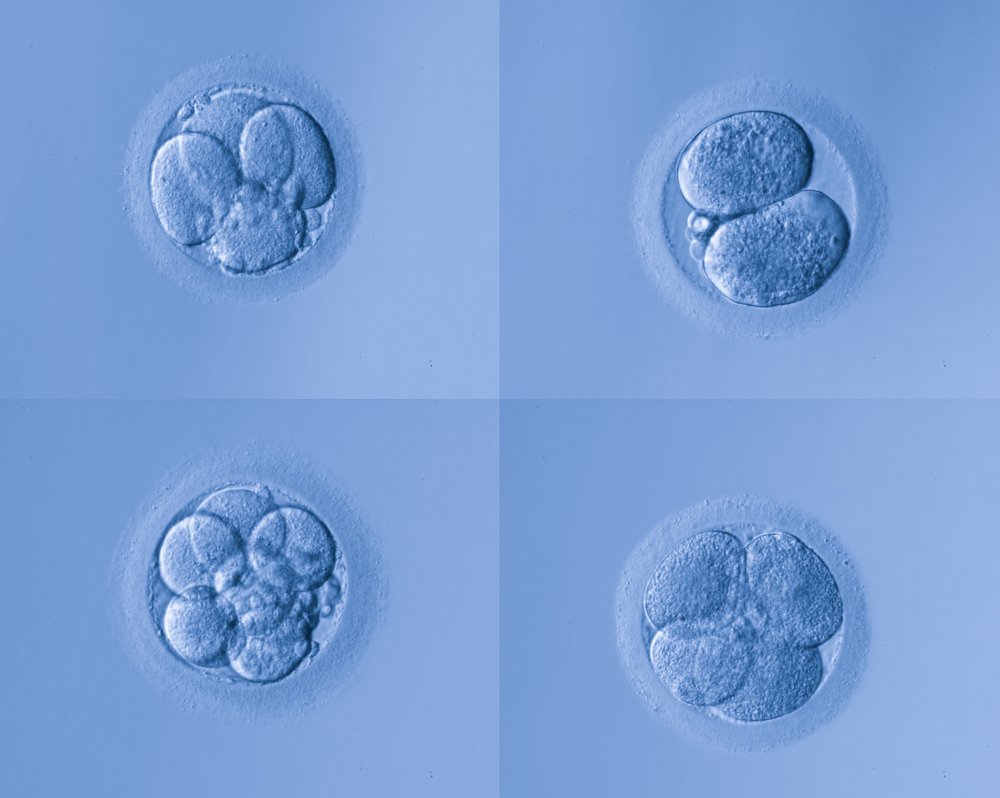
So, the embryo is formed; after the eggs and the sperms are fertilized in a petri dish. And are then left to divide themselves for a period of a week. The IVF process is also known as test-tube baby, as the fertilization or the creation of the embryo; takes place outside the female body. Whereas in a normal pregnancy, it occurs inside the female’s body.
Positive Signs and Symptoms after Embryo transfer-
Aastha Fertility Centre has been providing the best and safest treatments in Assisted Reproductive Technology (ART) with the highest success rate of embryo transfers and in In-Vitro Fertilizations or Test Tube Baby and Intrauterine Insemination for more than a decade.
Here are signs and symptoms that will show that you can successfully conceive, indicating a positive embryo transfer outcome. Some of these positive symptoms are as follows-
1.Spotting and Bleeding
Suppose you experience very light spotting and bleeding in your underpants; after 7 days of embryo transfer. It can be a highly positive sign that can also be an early sign of pregnancy. However, a confirmation from a doctor may give you a clear picture.
2. Sore Breasts
Sore, tender breasts are also an early sign of pregnancy. One can even experience this even in a natural pregnancy. However, pregnancy hormones cause sore breasts; an examination from a doctor is needed to confirm a pregnancy.
3. Cramping
Cramping is a sign of mensuration and can also be a positive sign of a successful embryo transfer. But, also keep in mind that mild cramping can also be due to progesterone you are taking during the two-week wait period.
4. Nausea
Morning sickness or nausea is generally caused in the 2nd month of pregnancy. However, if you feel the symptoms in your wait period, talk to your doctor about it.
5. Fatigue and Tiredness
Feeling extremely sleepy and tired after 7 days of your embryo transfer; can be a highly positive sign of successful embryo transfer. Well, on the other hand, it may also show a side effect; of some fertility medications you use. So, it’s better to talk to your doctor about it.
6. Bloating
Bloating is a common sign before the menstruation cycle, as there is an increase in progesterone levels. However, it can be a positive sign of pregnancy during an IVF cycle and after an embryo transfer.
7. Change in Vaginal Discharge
After 7 days of embryo transfer, you may observe a white, slightly-smelling vaginal discharge, which can show positive signs of early pregnancy in you.
8. Increase in Urination
If you go through frequent urination after the process of embryo transfer. Many women even experience a need to urinate more frequently before missing their menstruation. But this is usually a symptom you’ll notice after a missed period. So, if you see an increase in urination, it can show a positive sign of embryo transfer. However, it can also show an infection in the urinary tract. So, it is important to consult your doctor if you notice any of these symptoms too:
- Bleeding
- Fever
- Painful urination
- Urgency to urinate
- Nausea and vomiting
9. Missed Symptom
The most common and prominent sign, which shows a successful embryo transfer is a Missed period. So, if you have a regular monthly cycle, it is better to conduct a pregnancy test and be sure of the good news.
10. No Symptoms
Even if you do not see any of the above symptoms; you should not worry. Sometimes these symptoms take more than 7 days to show.
After the embryo transfer, a female is monitored closely to see whether the embryo has been transferred in completely. Doctors at Aastha Fertility Care have devised ways to minimize the chances of IVF failure. Regular checkups are done so that any problems can be identified and sorted out on time.
When You can take Pregnancy Test After Embryo Transfer
Every woman who has gone through IVF Procedure and is waiting to see a positive sign in their pregnancy report after the final embryo transfer should wait for 7 to 10 days to get an accurate pregnancy test.
After the Embryo transfer, the embryo takes 24 to 72 hours to get attached to the uterus. Within a 1 to 2 week period, the body produces enough hCG, which is easily identified via a pregnancy test. So, it’s better to schedule your pregnancy test after a week or 10 days after the embryo transfer.
Embryo Transfer Procedure- The Final Step Towards Successful Pregnancy-
This is the final step of the IVF process, on which the success of the whole IVF process depends. The doctors, before transferring the embryo, use ultrasonography to measure endometrial thickness in addition to detecting uterine masses, giving it an edge over laparoscopy/hysteroscopy as a diagnostic procedure in uterine cavity assessment. Ultrasonography is done to diagnose diseases like cancer and if found, doctors use fertility preservation. Also, if the doctor feels that the patient’s body is not ready to bear the child, they may suggest the couple take the help of a surrogate mother.
So, around 2-3 days before the embryo transfer process, the doctor chooses the best eggs that should be transferred. This selection is made through many non-invasive methods, such as metabolomic profiling. This process lets the doctor select the most beneficial eggs for the cycle of IVF. After that, the doctors leave these eggs for 2-3 days; to culture them well in the lab. If more than one good-quality embryo is formed, the extra ones can be frozen for the other cycles or donations.
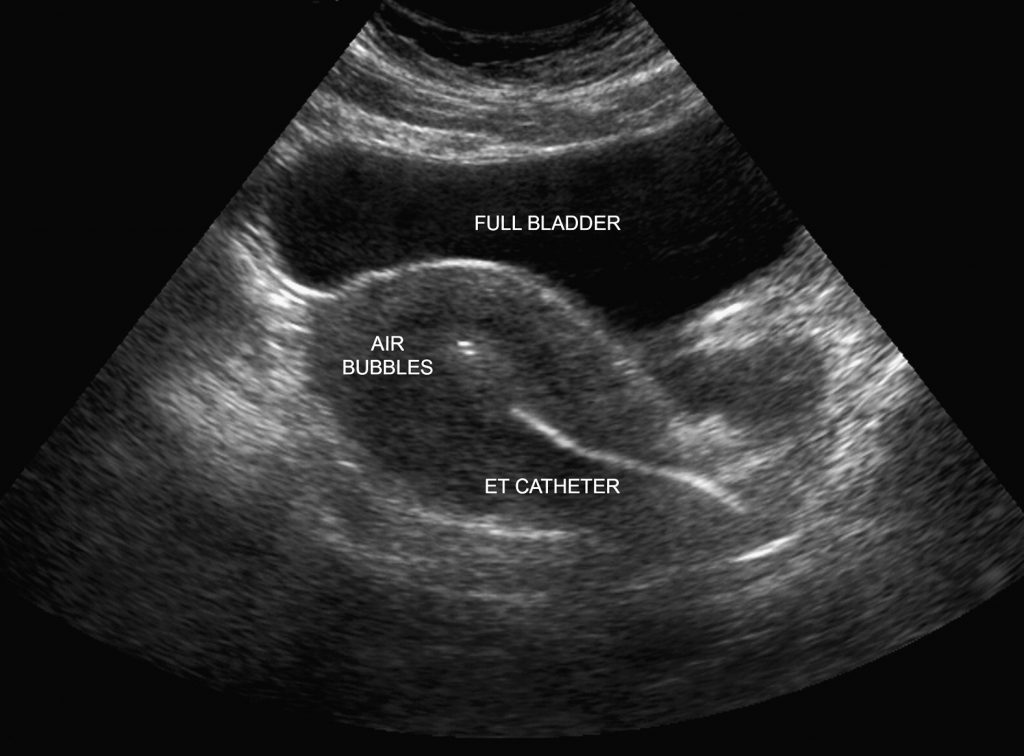
On the day of the embryo transfer, the woman is given local anesthesia. The doctors use a speculum to open the vaginal openings throughout transferring. Then the doctor uses ultrasound to keep the accuracy of the procedure, and then a thin catheter passes through the cervix and into the womb. The whole process usually is painless; however, some women complain of mild cramping as the speculum is inserted or from having a full bladder, which is required for an ultrasound. But it goes away within a day or two. Also, the process is quick, and the patient can empty the bladder; as soon as the process is completed.
After a week or two of the procedure, the successful pregnancy can be confirmed. A blood test usually does this to check if the process was successful or not.
It is essential to have an eye on your health after the embryo transfer procedure to ensure that you remain healthy. The doctors at Aastha Fertility Care provide regular checkups. This helps us provide alternate options and gives us the chance to ask you about any discomfort you might be facing.
Types of Embryo Transfer-
In all embryo transfers, the doctors follow the same process. However, Once the fertilization happens, there are a few different options available for embryo transfer:
- Fresh Embryo Transfer- In this, an embryo is cultured within a day to two. Then the best embryos are chosen to transfer to the woman’s uterus.
- Frozen Embryo transfer- The healthy embryos that were not used initially were stored successfully and then used in later cycles.
How Many Embryos are Transferred in an IVF Process-
In most IVF cases, the doctor only transfers a single embryo. However, the doctor may transfer 2 to 3 embryos in some cases. And generally, doctors inform the patient beforehand about the number of embryos assigned in case of multiple pregnancies.
Why Do You Need an Ultrasound Before IVF?
The doctors conduct ultrasounds such as Hysteroscopy and AHM; before IVF, they want to know the exact causes that are causing infertility in women. And to tell if the uterus is healthy enough to bear a baby. Also, ultrasounds do not stop at this point; even after the IVF process starts; the doctors conduct the process of IVF at every stage; to check the progress of the IVF process.
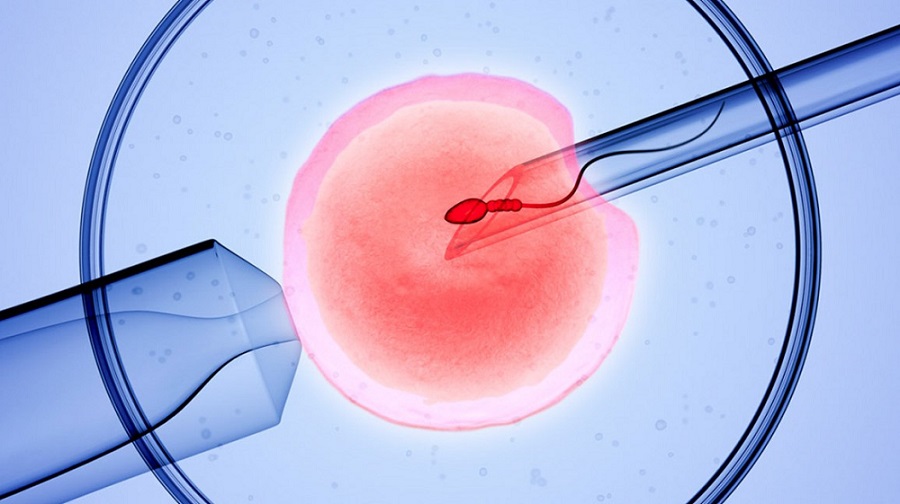
Aastha Fertility Care – Your Partner For Professional IVF Treatment in Jaipur
For all couples seeking medical professionals to help them conceive, the Aastha fertility center is the right option for you. Also, the center uses all the modern Embryo transfer techniques with the best equipment and ultrasonography, AMH Blood test, and hysteroscopy test to get the highest rate of success for IVF. The center also has a highly qualified team of doctors and staff who are on their toes to provide patients with the best possible solutions for their infertility issues. Our IVF treatments are not painful and have the best success rates in India.
People worldwide have been talking about the excellent services and results provided by the Aastha fertility center. Many couples from various parts of the world have contacted the best IVF clinic in Jaipur, Aastha Fertility, to discuss and resolve their infertility issues.
The success rate of IVF treatments of Aastha fertility center is approximately 90%. You can also book an online counseling session with the best IVF specialist to get the right solution to their infertility issue. Also, one of the reasons why the Aastha Fertility care stands out is that Dr. Namita Kotia, the head and the owner of the center, has been honored on several occasions; for her selfless work in treating infertility.
Also, if you want more information about the IVF center, doctors, services, and the IVF cost of the procedures, check it out on our official website of Aastha Fertility care and book your appointment with us.
Frequently Asked Question
- How soon after embryo transfer does a female feels positive symptoms?
When a patient goes through IVF treatment, the female’s egg and male sperm are fertilized in an incubator; the fertilized embryo is inserted directly into the female’s uterus. And approximately after two weeks, the early pregnancy symptoms start to occur. - How Do You Know That Embryo Implantation is Successful?
The earliest sign of successful implantation is when a female encounters implantation bleeding that occurs 6-12 after conception. Some females might face spotting or light cramping as well. - What are the symptoms of a failed embryo transfer?
The most common symptoms of a failed embryo transfer are chronic pelvic pain, painless menses, and bowel obstruction.

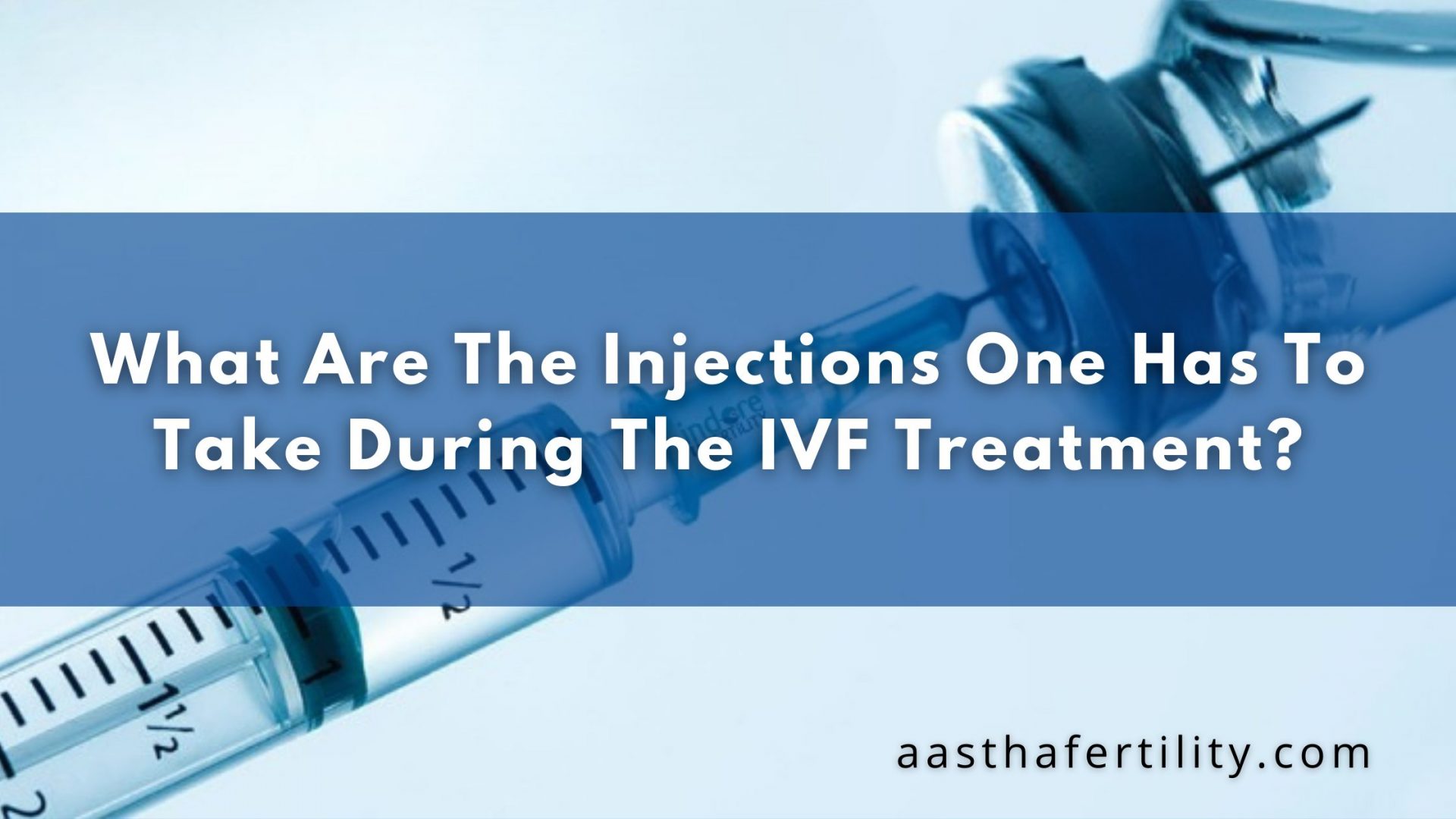

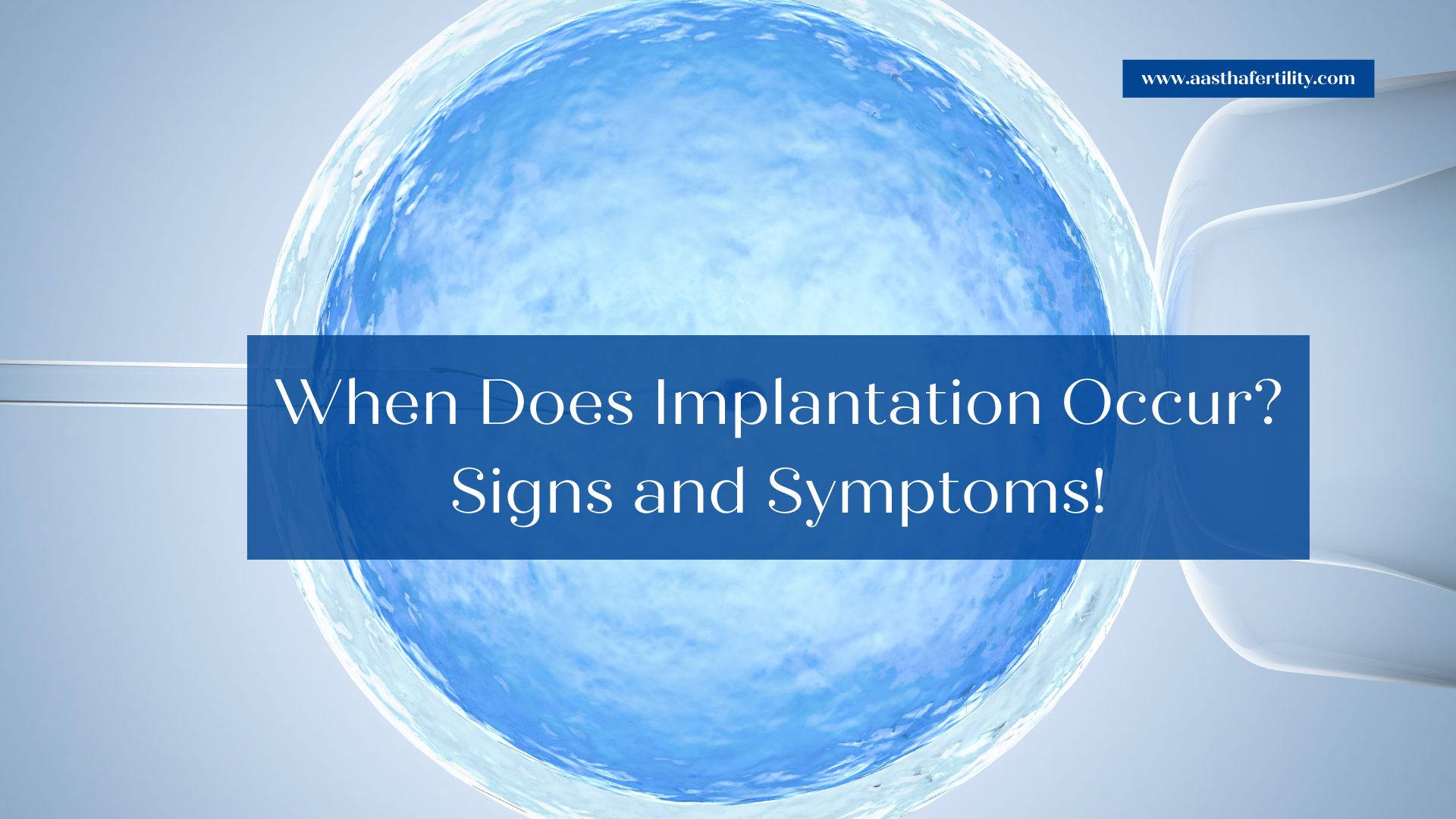

Leave a comment